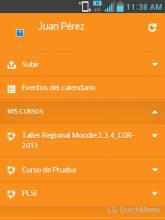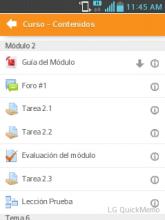News E-Learning
Bulletin Health Systems and Services - PAHO - April 2018

April 30, 2018
 PAHO calls for breaking down barriers that keep one in three people in the Americas from accessing health
PAHO calls for breaking down barriers that keep one in three people in the Americas from accessing health
On the eve of World Health Day, the Director of the Pan American Health Organization, Carissa F. Etienne, and former president of Chile Michelle Bachelet called for collective actions to ensure that all people, everywhere have access to the health services they need. Read more
 Improving access to health care would prevent 600,000 deaths per year in the Americas, claims PAHO
Improving access to health care would prevent 600,000 deaths per year in the Americas, claims PAHO
"Today, more than a third of the region’s inhabitants lack access to comprehensive, quality health care," said the Director of PAHO, Carissa F. Etienne, during the inauguration of the III Cuba-Salud International Convention 2018. Read more
 New virtual course on the regulation of biological and biotechnological products
New virtual course on the regulation of biological and biotechnological products
The purpose of the course is to develop competencies for the evaluation of biological and biotechnological products by the National Regulatory Authorities (ARN) and to support the development of drug regulatory functions in the Region of the Americas. The call for applications closed on April 20. Read more
Bulletin Health Systems and Services - PAHO - April 2018

April 30, 2018
 PAHO calls for breaking down barriers that keep one in three people in the Americas from accessing health
PAHO calls for breaking down barriers that keep one in three people in the Americas from accessing health
On the eve of World Health Day, the Director of the Pan American Health Organization, Carissa F. Etienne, and former president of Chile Michelle Bachelet called for collective actions to ensure that all people, everywhere have access to the health services they need. Read more
 Improving access to health care would prevent 600,000 deaths per year in the Americas, claims PAHO
Improving access to health care would prevent 600,000 deaths per year in the Americas, claims PAHO
"Today, more than a third of the region’s inhabitants lack access to comprehensive, quality health care," said the Director of PAHO, Carissa F. Etienne, during the inauguration of the III Cuba-Salud International Convention 2018. Read more
 New virtual course on the regulation of biological and biotechnological products
New virtual course on the regulation of biological and biotechnological products
The purpose of the course is to develop competencies for the evaluation of biological and biotechnological products by the National Regulatory Authorities (ARN) and to support the development of drug regulatory functions in the Region of the Americas. The call for applications closed on April 20. Read more
eLearning for undergraduate health professional education - a systematic review informing a radical transformation of health workforce development

This publication on ‘eLearning for Undergraduate Health Professional Education’ responds to a need at the country level for evidence to inform and guide health professional education as an important vehicle in preparing health professionals to be ‘fit-for-purpose’. The World Health Organization (WHO) Department of Health Workforce in collaboration with the Department of Knowledge, Ethics and Research commissioned the Global eHealth Unit (GeHU) at Imperial College London to conduct a systematic review of the scientific literature to evaluate the effectiveness of eLearning for undergraduate health professional education.
At a global level, it will assist in the implementation of the WHO’s global human resources for health strategy by providing the best evidence of how and where eLearning can best be used in country settings. The report also provides a foundation for the development of future WHO guidelines for pre-service training and the direction for future research.
eLearning for undergraduate health professional education - a systematic review informing a radical transformation of health workforce development

This publication on ‘eLearning for Undergraduate Health Professional Education’ responds to a need at the country level for evidence to inform and guide health professional education as an important vehicle in preparing health professionals to be ‘fit-for-purpose’. The World Health Organization (WHO) Department of Health Workforce in collaboration with the Department of Knowledge, Ethics and Research commissioned the Global eHealth Unit (GeHU) at Imperial College London to conduct a systematic review of the scientific literature to evaluate the effectiveness of eLearning for undergraduate health professional education.
At a global level, it will assist in the implementation of the WHO’s global human resources for health strategy by providing the best evidence of how and where eLearning can best be used in country settings. The report also provides a foundation for the development of future WHO guidelines for pre-service training and the direction for future research.
eLearning for undergraduate health professional education - a systematic review informing a radical transformation of health workforce development

This publication on ‘eLearning for Undergraduate Health Professional Education’ responds to a need at the country level for evidence to inform and guide health professional education as an important vehicle in preparing health professionals to be ‘fit-for-purpose’. The World Health Organization (WHO) Department of Health Workforce in collaboration with the Department of Knowledge, Ethics and Research commissioned the Global eHealth Unit (GeHU) at Imperial College London to conduct a systematic review of the scientific literature to evaluate the effectiveness of eLearning for undergraduate health professional education.
At a global level, it will assist in the implementation of the WHO’s global human resources for health strategy by providing the best evidence of how and where eLearning can best be used in country settings. The report also provides a foundation for the development of future WHO guidelines for pre-service training and the direction for future research.
XVI Meeting will be held AIESAD

- Best practices in the use of technology for virtual learning:
- Open Learning: Strengths and Weaknesses
- Tools for modern management of EAD
- New tools for EAD
XVI Meeting will be held AIESAD

- Best practices in the use of technology for virtual learning:
- Open Learning: Strengths and Weaknesses
- Tools for modern management of EAD
- New tools for EAD
New “Moodle Mobile” app could be interesting

The official Moodle Mobile app has been recently released on Google Play, Apple and Windows Market App Stores.
It is important to mention that the app only works with Moodle sites that have been configured to allow it (although we consider it an interesting app, currently the Virtual Classrooms of the PAHO Virtual Campus for Public Health do not include this option, while we wait for improvements).
Also worth noting is that the app is only a complement for Moodle mobile theme (responsive theme), which offers many more possibilities for users in their course activities.
The Moodle Mobile app is primarily designed to integrate Moodle with mobiles (smarthphones, for example).
In the app description states that you can use this application to:
- Browse the content of our courses, even offline
- Receive instant notifications of messages and other events
- Quickly find and connect with others in our courses
- Upload images, audio, videos and other files from your mobile device
- See the course grades
Other features:
- Upload images, photos, videos to your "private files" area
- Send a private message to a course participant
- Take a personal note about a course participant
- Call a course participant touching the phone number
- Add a course participant to your phone contact
- Download and view some course resources
- View calendar events
- Mobile Push notifications
- View your activity and course total grades in a course
- Browse and download your private and course files
Download page in Apple Store app Market and iTunes










New “Moodle Mobile” app could be interesting

The official Moodle Mobile app has been recently released on Google Play, Apple and Windows Market App Stores.
It is important to mention that the app only works with Moodle sites that have been configured to allow it (although we consider it an interesting app, currently the Virtual Classrooms of the PAHO Virtual Campus for Public Health do not include this option, while we wait for improvements).
Also worth noting is that the app is only a complement for Moodle mobile theme (responsive theme), which offers many more possibilities for users in their course activities.
The Moodle Mobile app is primarily designed to integrate Moodle with mobiles (smarthphones, for example).
In the app description states that you can use this application to:
- Browse the content of our courses, even offline
- Receive instant notifications of messages and other events
- Quickly find and connect with others in our courses
- Upload images, audio, videos and other files from your mobile device
- See the course grades
Other features:
- Upload images, photos, videos to your "private files" area
- Send a private message to a course participant
- Take a personal note about a course participant
- Call a course participant touching the phone number
- Add a course participant to your phone contact
- Download and view some course resources
- View calendar events
- Mobile Push notifications
- View your activity and course total grades in a course
- Browse and download your private and course files
Download page in Apple Store app Market and iTunes










New update for iTunes U with collaboration tools for teachers

As of July 8, 2014 provides a new update of iTunes U in the version for Apple iPads.
iTunes U is a free app that lets you create complete through iPads, iPhones and iPods courses. Teachers can add content and learning resources from other educational apps available for these devices. You can also easily add resources from a catalog of free educational content from iTunes U, including books, photos, videos, classes, exercises or websites.
In this new update, it becomes easier to create and manage courses from the iPad. Furthermore, to promote collaboration, creating discussion forums, chats, or notifications for messages allowed, facilitating communication between teachers and their students. Teachers always have the option to moderate the debates.
iTunes U is available in several countries and has been used by various universities and academic institutions.
Other options that allows iTunes U are easy downloading of materials to work and study off-line, manage tasks and assignments, teachers participating in the creation of courses (up to 5 employees) option for self-study courses / self-study or tutored (times defined by the teacher), indicating the particular course licenses (eg, Creative Commons) tool to duplicate or publish courses annotations materials by students, RSS channels resources.
Apple has created an educational app for creating interesting to evaluate courses. Other tech companies (Facebook, Microsoft, Google) have also dedicated spaces for education, obtaining different results.
More information:
Official announcement by Apple (English)
Download iTunes U (English)
ITunes U Guide (English)
iTunes debut forums from July 8 (News in Spanish)
New update for iTunes U with collaboration tools for teachers

As of July 8, 2014 provides a new update of iTunes U in the version for Apple iPads.
iTunes U is a free app that lets you create complete through iPads, iPhones and iPods courses. Teachers can add content and learning resources from other educational apps available for these devices. You can also easily add resources from a catalog of free educational content from iTunes U, including books, photos, videos, classes, exercises or websites.
In this new update, it becomes easier to create and manage courses from the iPad. Furthermore, to promote collaboration, creating discussion forums, chats, or notifications for messages allowed, facilitating communication between teachers and their students. Teachers always have the option to moderate the debates.
iTunes U is available in several countries and has been used by various universities and academic institutions.
Other options that allows iTunes U are easy downloading of materials to work and study off-line, manage tasks and assignments, teachers participating in the creation of courses (up to 5 employees) option for self-study courses / self-study or tutored (times defined by the teacher), indicating the particular course licenses (eg, Creative Commons) tool to duplicate or publish courses annotations materials by students, RSS channels resources.
Apple has created an educational app for creating interesting to evaluate courses. Other tech companies (Facebook, Microsoft, Google) have also dedicated spaces for education, obtaining different results.
More information:
Official announcement by Apple (English)
Download iTunes U (English)
ITunes U Guide (English)
iTunes debut forums from July 8 (News in Spanish)
E-Learning Market Trends & Forecasts 2014-2016 Report

The U.S. company Docebo (dedicated to providing E-learning services) published in March of this year a study that suggests that it is estimated that $51 billion will be invested in 2016 in e-learning worldwide. Although this study is intended largely to investors, the information provided is interesting.
The report distinguishes three components or sub-sectors of e-learning: Content, authoring tools, and virtual learning platforms.
The worldwide growth for all three components combined is 7.6% but some regions will grow more: Asia (17.3%), Europe (16.9%), Africa (15.2%) and Latin America (14.6%).
There is a great demand for self-paced e-learning (in which learners study at their own pace, without a fixed starting date or regularly scheduled assignment completion dates).
Also, there is growth in the demand for LMS (learning management systems). Moodle is still one of the most commonly used platforms, but the percentages of use are highly dependent on the sector (education, government, business).
Packaged content is also needed, imported from abroad or outsourced in various regions.
The research also presents a quick look at e-learning in higher education and K-12 education. For example, they cite the study by Babson Survey Research Group, in which it is estimated that 6.7 million American college students enrolled in at least one online course in 2011. That is, nearly a third of all students enrolled in higher education in the U.S.A.
According to the Universia network, "e-learning should have a greater presence in educational institutions and companies, as well as in homes of those who conduct online courses... For this reason, it is also likely that in the next three years the number of people using this modality for educational purposes will increase substantially."
More information:
E-Learning Market Trends & Forecasts 2014-2016 Report

The U.S. company Docebo (dedicated to providing E-learning services) published in March of this year a study that suggests that it is estimated that $51 billion will be invested in 2016 in e-learning worldwide. Although this study is intended largely to investors, the information provided is interesting.
The report distinguishes three components or sub-sectors of e-learning: Content, authoring tools, and virtual learning platforms.
The worldwide growth for all three components combined is 7.6% but some regions will grow more: Asia (17.3%), Europe (16.9%), Africa (15.2%) and Latin America (14.6%).
There is a great demand for self-paced e-learning (in which learners study at their own pace, without a fixed starting date or regularly scheduled assignment completion dates).
Also, there is growth in the demand for LMS (learning management systems). Moodle is still one of the most commonly used platforms, but the percentages of use are highly dependent on the sector (education, government, business).
Packaged content is also needed, imported from abroad or outsourced in various regions.
The research also presents a quick look at e-learning in higher education and K-12 education. For example, they cite the study by Babson Survey Research Group, in which it is estimated that 6.7 million American college students enrolled in at least one online course in 2011. That is, nearly a third of all students enrolled in higher education in the U.S.A.
According to the Universia network, "e-learning should have a greater presence in educational institutions and companies, as well as in homes of those who conduct online courses... For this reason, it is also likely that in the next three years the number of people using this modality for educational purposes will increase substantially."
More information:
E-Learning Market Trends & Forecasts 2014-2016 Report

The U.S. company Docebo (dedicated to providing E-learning services) published in March of this year a study that suggests that it is estimated that $51 billion will be invested in 2016 in e-learning worldwide. Although this study is intended largely to investors, the information provided is interesting.
The report distinguishes three components or sub-sectors of e-learning: Content, authoring tools, and virtual learning platforms.
The worldwide growth for all three components combined is 7.6% but some regions will grow more: Asia (17.3%), Europe (16.9%), Africa (15.2%) and Latin America (14.6%).
There is a great demand for self-paced e-learning (in which learners study at their own pace, without a fixed starting date or regularly scheduled assignment completion dates).
Also, there is growth in the demand for LMS (learning management systems). Moodle is still one of the most commonly used platforms, but the percentages of use are highly dependent on the sector (education, government, business).
Packaged content is also needed, imported from abroad or outsourced in various regions.
The research also presents a quick look at e-learning in higher education and K-12 education. For example, they cite the study by Babson Survey Research Group, in which it is estimated that 6.7 million American college students enrolled in at least one online course in 2011. That is, nearly a third of all students enrolled in higher education in the U.S.A.
According to the Universia network, "e-learning should have a greater presence in educational institutions and companies, as well as in homes of those who conduct online courses... For this reason, it is also likely that in the next three years the number of people using this modality for educational purposes will increase substantially."
More information:
Moodle releases new version 2.7
Recently, Moodle version 2.7, which includes enhancements for teachers, students and administrators, was released.
Configuration of conditional activities, uploading of assignments, and questionnaire design offer new options. We also found a new HTML text editor.
Version 2.6 (November 2013) also brought new changes in the assignment of grades, review PDF, quick editing of activities and resources, improvements to the calendar and greater compatibility with all types of devices (desktop computer, tablets, mobile phones), among other innovations.
Moodle (an open source project with the help of a community of developers and users) is still implemented in many sites and courses and has also been translated into several languages.
You can check on the Moodle site for more information:
Moodle releases new version 2.7
Recently, Moodle version 2.7, which includes enhancements for teachers, students and administrators, was released.
Configuration of conditional activities, uploading of assignments, and questionnaire design offer new options. We also found a new HTML text editor.
Version 2.6 (November 2013) also brought new changes in the assignment of grades, review PDF, quick editing of activities and resources, improvements to the calendar and greater compatibility with all types of devices (desktop computer, tablets, mobile phones), among other innovations.
Moodle (an open source project with the help of a community of developers and users) is still implemented in many sites and courses and has also been translated into several languages.
You can check on the Moodle site for more information:
Possibilities and Challenges of E-learning in the African Continent

E-learning and open and distance education is growing worldwide. There is no doubt that the experiences in each region, although different and dependent on the context, can be useful to improve proposals.
According to some market research reports, in Africa the demand for products and services for e -learning (platforms, authoring tools, content development, etc.) is growing rapidly, as well as Asia and Latin America.
The use of mobile devices and smart phones by a growing number of people could facilitate e-learning and m-learning. In a similar way, it will also be necessary to expand the coverage of broadband internet and technology infrastructure, which partly depends on public policies.
The advantages of e-learning are even more clear, both in college, academic institutions (with the help of non-governmental organizations, such as the open courses on finance, intellectual property and trade offered by the United Nations) and companies, using platforms such as Moodle, Claroline and Sakai. We must also consider that traditional educational institutions in Africa will not be able to meet the students’ demand for higher education (vocational and academic), so e-learning becomes even more important.
Paul Prinsloo, a research professor at the University of South Africa, in an article published in March 2014, emphasizes that open, distance and e-learning has the potential to "contribute to economic growth, erase inter-generational poverty and address societal injustices and inequalities on the African continent.”
The international eLearning Africa conference, in its ninth year, will be held in the country of Uganda, from 28 to 30 May 2014, with the theme "Opening Frontiers to the Future" which demonstrates the interest in using technologies in education.
Another advance in e-learning is the African Virtual University (African Virtual University - AVU) with more than 310,000 students, and a wide range of online courses.
Our desire with this brief article has been to take a look at e-learning in other contexts.
More information:
E-learning trends by Kirsty Chadwick
Possibilities and Challenges of E-learning in the African Continent

E-learning and open and distance education is growing worldwide. There is no doubt that the experiences in each region, although different and dependent on the context, can be useful to improve proposals.
According to some market research reports, in Africa the demand for products and services for e -learning (platforms, authoring tools, content development, etc.) is growing rapidly, as well as Asia and Latin America.
The use of mobile devices and smart phones by a growing number of people could facilitate e-learning and m-learning. In a similar way, it will also be necessary to expand the coverage of broadband internet and technology infrastructure, which partly depends on public policies.
The advantages of e-learning are even more clear, both in college, academic institutions (with the help of non-governmental organizations, such as the open courses on finance, intellectual property and trade offered by the United Nations) and companies, using platforms such as Moodle, Claroline and Sakai. We must also consider that traditional educational institutions in Africa will not be able to meet the students’ demand for higher education (vocational and academic), so e-learning becomes even more important.
Paul Prinsloo, a research professor at the University of South Africa, in an article published in March 2014, emphasizes that open, distance and e-learning has the potential to "contribute to economic growth, erase inter-generational poverty and address societal injustices and inequalities on the African continent.”
The international eLearning Africa conference, in its ninth year, will be held in the country of Uganda, from 28 to 30 May 2014, with the theme "Opening Frontiers to the Future" which demonstrates the interest in using technologies in education.
Another advance in e-learning is the African Virtual University (African Virtual University - AVU) with more than 310,000 students, and a wide range of online courses.
Our desire with this brief article has been to take a look at e-learning in other contexts.
More information:
E-learning trends by Kirsty Chadwick
EXPOELEARNING 2014 in Chile, Costa Rica and Bogota, Colombia

The EXPOELEARNING Conference and Exhibition is an international event focused on e-learning, ICTs and Human Resources, organized by AEFOL. It is one of the main e-learning events of Spain and Latin America.
According to its website, several editions have been planned for 2014 in Latin America (May 15th in Chile and June 11 & 12 in Costa Rica). There has also been announced and edition in Bogotá, Colombia, but no specific dates are given in the website.
Access to the exhibition area is free. Regarding the conferences for this event (which do include an inscription fee), the main topic for the recently finished EXPOELEARNING Madrid, Spain 2014 was the “Future of e-Learning”. Forums, workshops and other activities are also part of the event.
For more information:
EXPOELEARNING 2014 in Chile, Costa Rica and Bogota, Colombia

The EXPOELEARNING Conference and Exhibition is an international event focused on e-learning, ICTs and Human Resources, organized by AEFOL. It is one of the main e-learning events of Spain and Latin America.
According to its website, several editions have been planned for 2014 in Latin America (May 15th in Chile and June 11 & 12 in Costa Rica). There has also been announced and edition in Bogotá, Colombia, but no specific dates are given in the website.
Access to the exhibition area is free. Regarding the conferences for this event (which do include an inscription fee), the main topic for the recently finished EXPOELEARNING Madrid, Spain 2014 was the “Future of e-Learning”. Forums, workshops and other activities are also part of the event.
For more information:
